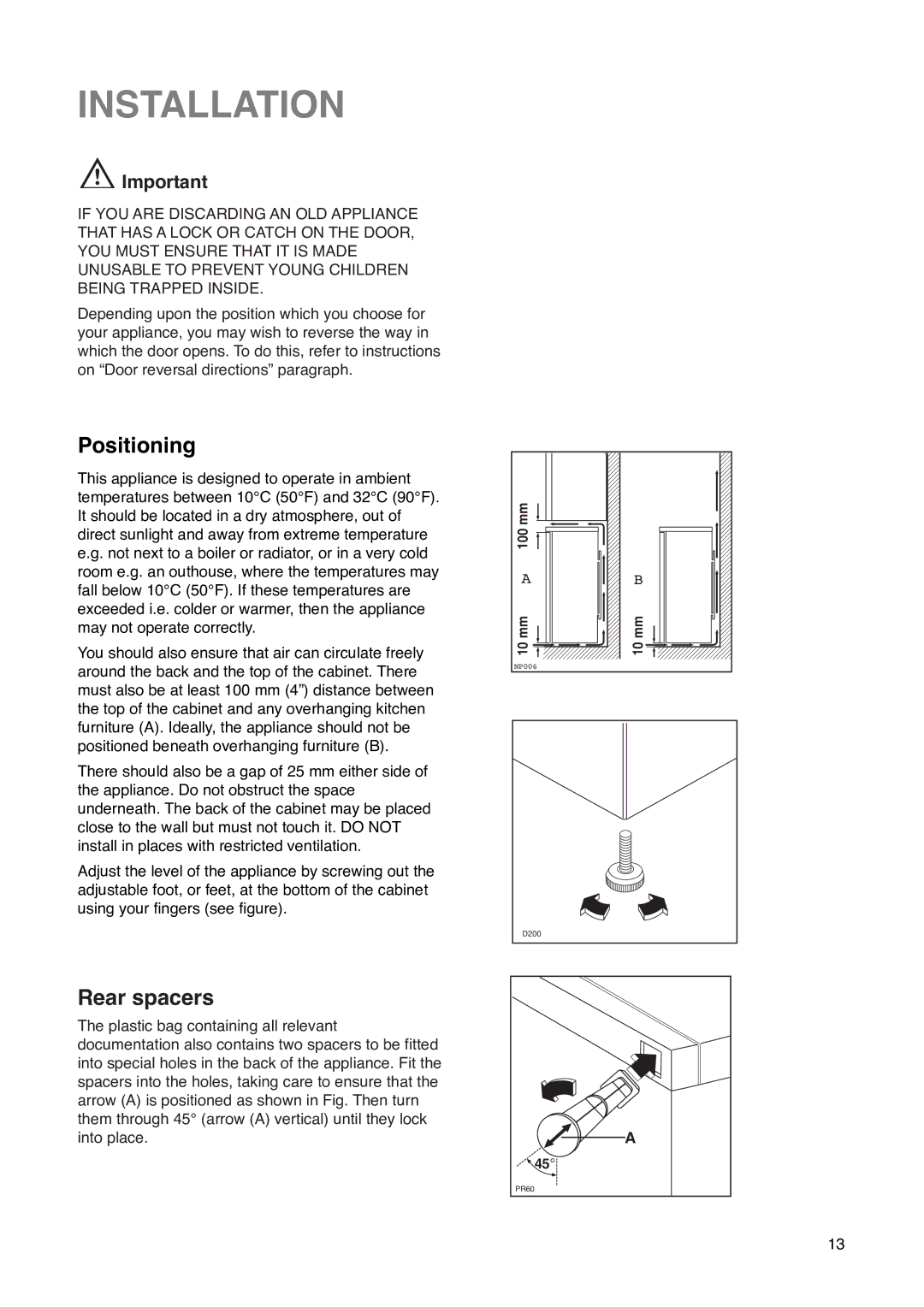
INSTALLATION
![]() Important
Important
IF YOU ARE DISCARDING AN OLD APPLIANCE THAT HAS A LOCK OR CATCH ON THE DOOR, YOU MUST ENSURE THAT IT IS MADE UNUSABLE TO PREVENT YOUNG CHILDREN BEING TRAPPED INSIDE.
Depending upon the position which you choose for your appliance, you may wish to reverse the way in which the door opens. To do this, refer to instructions on ÒDoor reversal directionsÓ paragraph.
Positioning
This appliance is designed to operate in ambient temperatures between 10¡C (50¡F) and 32¡C (90¡F). It should be located in a dry atmosphere, out of direct sunlight and away from extreme temperature e.g. not next to a boiler or radiator, or in a very cold room e.g. an outhouse, where the temperatures may fall below 10¡C (50¡F). If these temperatures are exceeded i.e. colder or warmer, then the appliance may not operate correctly.
You should also ensure that air can circulate freely around the back and the top of the cabinet. There must also be at least 100 mm (4Ó) distance between the top of the cabinet and any overhanging kitchen furniture (A). Ideally, the appliance should not be positioned beneath overhanging furniture (B).
There should also be a gap of 25 mm either side of the appliance. Do not obstruct the space underneath. The back of the cabinet may be placed close to the wall but must not touch it. DO NOT install in places with restricted ventilation.
Adjust the level of the appliance by screwing out the adjustable foot, or feet, at the bottom of the cabinet using your fingers (see figure).
Rear spacers
The plastic bag containing all relevant documentation also contains two spacers to be fitted into special holes in the back of the appliance. Fit the spacers into the holes, taking care to ensure that the arrow (A) is positioned as shown in Fig. Then turn them through 45¡ (arrow (A) vertical) until they lock into place.
100 mm |
|
A | B |
10 mm | 10 mm |
NP006 |
|
D200 |
|
A |
45° |
PR60 |
13
